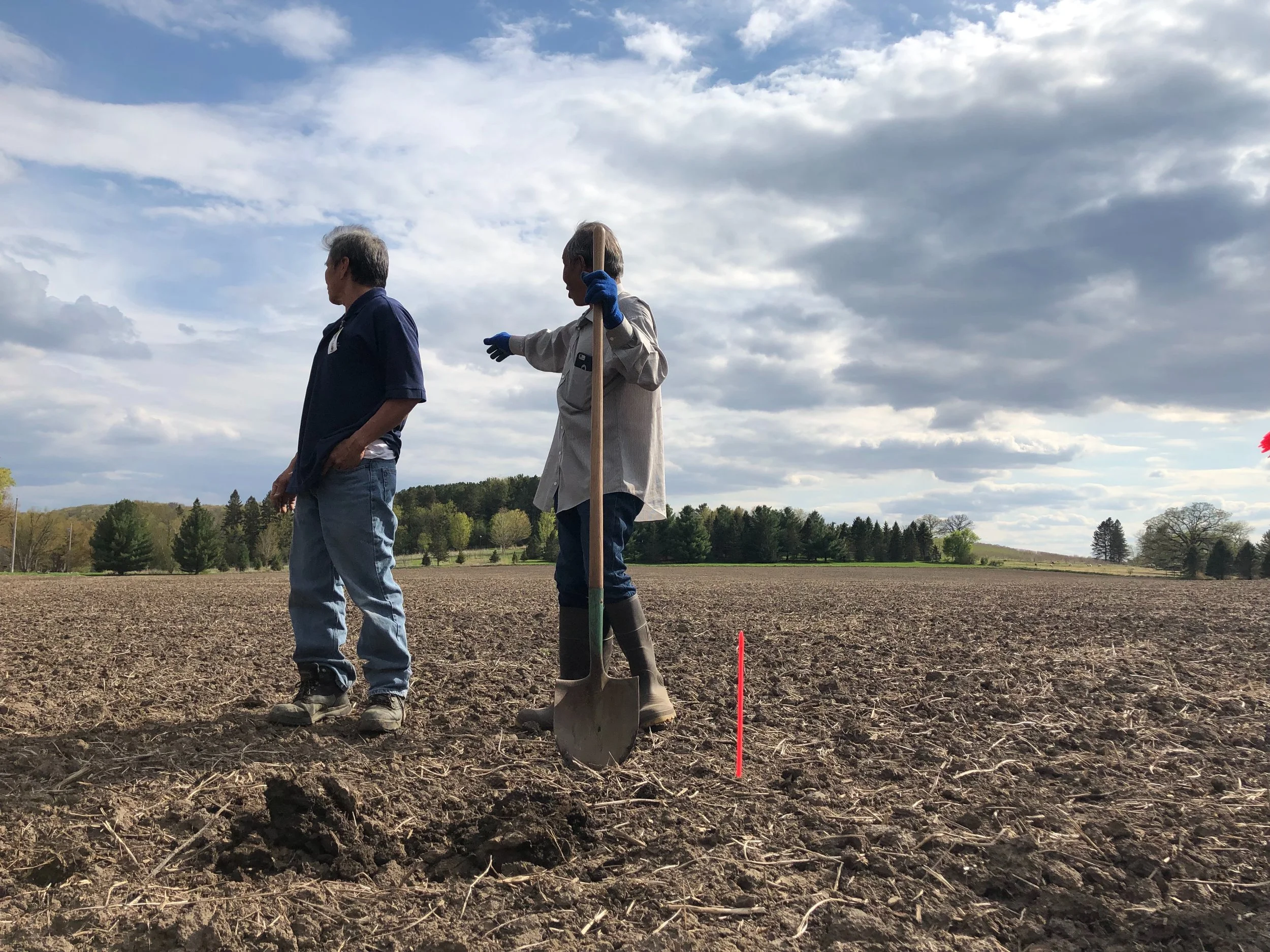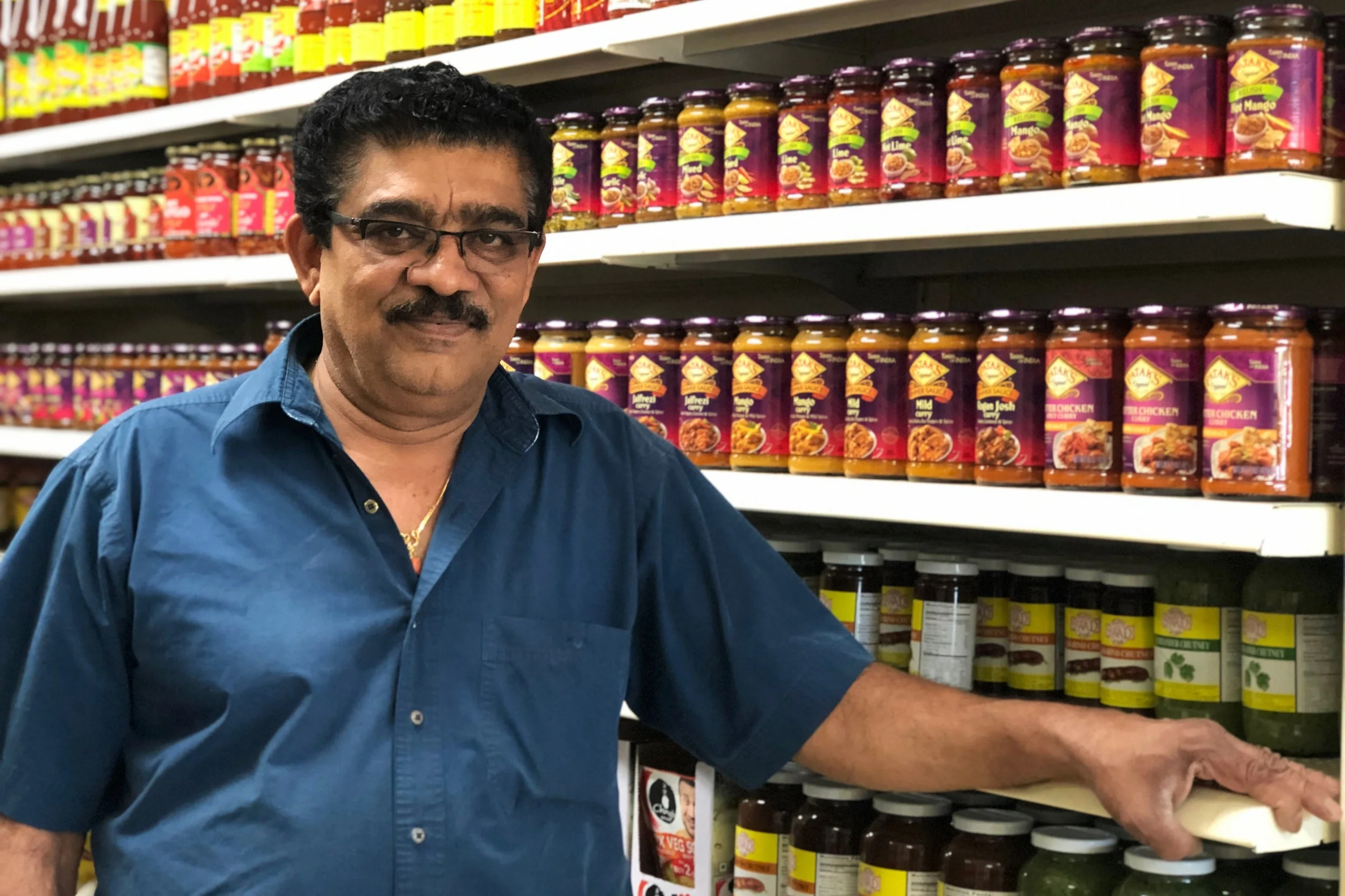Planting the seeds for cultural exchange
On Monday afternoon, the first plant went into the soil at The Village Community Garden, 4404 Salem Road, Rochester. It was a sweet Italian chili pepper. Soon, that pepper will be joined by crops from around the world as the 11-acre field, which is designated as free land for people to grow food on, opens itself to the community.
“We want to empower the community to grow and to share their knowledge,” said Kim Sin, longtime advocate for the city’s Cambodian population and lead organizer of the project. “Right now, where do you go to learn about another culture’s diet?”
The Village Community Garden could be that place. In addition to farming, Sin hopes the diverse array of crops being grown will spur people to integrate, interact, and exchange ideas. He believes topics like growing and fertilizing techniques, as well as potential health benefits of various foods, will spark plenty of conversations between plot neighbors.
Inspired by the idea of such cross-cultural exchanges, Joselyn Raymundo of Rochester Home Infusion donated the 11-acre parcel of land for the project.
“As a member of our Rochester community, I am inspired to give back and have the opportunity to bring people together from all walks of life experience deep engagement with each other as they grow vegetables together, exchange ideas in farming, and share resources,” said Raymundo.
Over a dozen residents made their way onto the tilled field donated by Raymundo on Monday. There were no ground-breaking ceremonies or speeches — Uong Ong simply grabbed a shovel, stuck it into the earth, and the work began.
The Village is a collaboration between the Diversity Council, Rochester Cambodian Community, Rochester Farmers Markets and benefactor Joselyn Raymundo / Photo by Bryan Lund
Farming is a crucial element of diets and lifestyles in other cultures, but those who immigrate here from more tropical climates often find themselves low on options.
Cambodian cooking utilizes a large amount of ingredients: bitter melon, ong choy, bok choy, Asian broccoli, and an array of herbs. All of these crops are difficult to grow in places like Minnesota and become prohibitively expensive to import come winter.
The loss of flavor to dishes is one thing, but Sin noticed that older Cambodians were growing more depressed, isolated, and unhealthy as they struggled to find suitable land to farm on.
A community effort
On a car ride to St. Paul, Sin and Dee Sabol of the Diversity Council passed the Hmong American Farmers Association Farm on Highway 52. Sin remarked that a similar operation would do wonders for the people he advocates for in Rochester.
It took a village to make the vision a reality. Sabol provided the connection to Raymundo, who provided the land. Kelly Rae Kirkpatrick from Plant a Seed has donated plants, and farmer Stephen Nigon volunteered his time last week to plow the 11-acre plot.
Partnerships extend into the educational realm, too. University of Minnesota Rochester, University of Minnesota Extension, and Rochester Community and Technical College are all on board in one way or another.
Kim Sin, an IT specialist at UMR, is the lead organizers on the project / Photo by Bryan Lund
‘An exchange of knowledge’
In the month since The Village’s Facebook page has been public, 30 people have signed up to work plots as small as 10’ by 10’ to those as big as 60’ by 60’. There are no restrictions based on income, age, race, religion, or anything. Just the way Sin envisioned.
The concept is similar to the Hmong farm. People can either grow to feed themselves or grow to sell. Sin has worked closely with the Rochester Farmers Markets, and, permits pending, plans to open up a market on Sundays in August where people can buy food grown at The Village. They’ll also have times for people to come pick for free.
Sin is also dreaming of pop-up grocery stores for the homeless and, in the fall, he will be teaching about the medicinal qualities of some vegetables grown by Cambodians.
“We all learn from each other, and this will give other elderly [populations], and other young generations, the opportunity to interact with other cultures that are different,” said Sin.
The land is meant to be used for about four years while Sin and his compatriots pilot the project and let the community see its worth. Eventually, Sin says, they hope to establish a more permanent home base.
Bryan Lund covers politics and culture for the Med City Beat.








